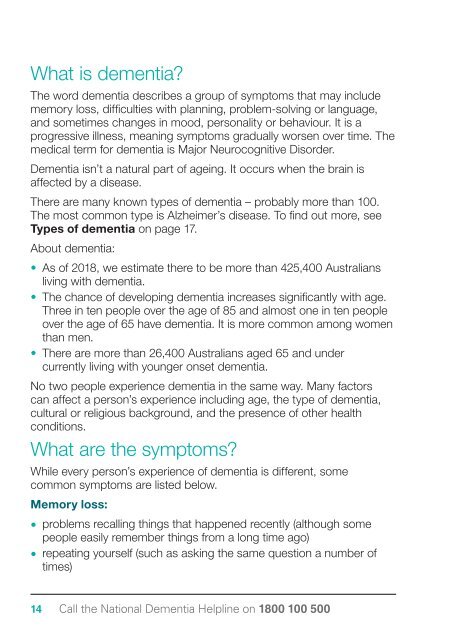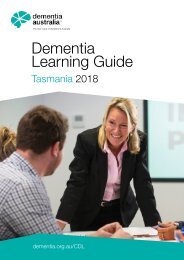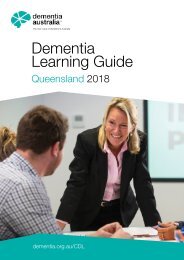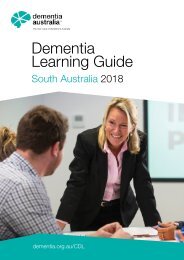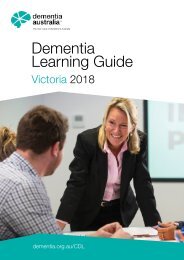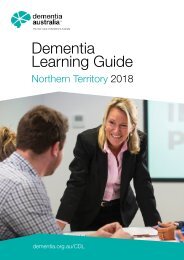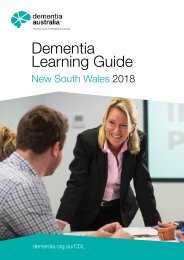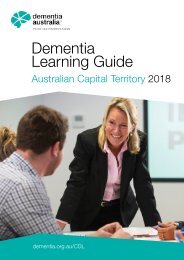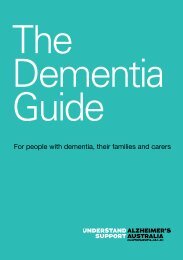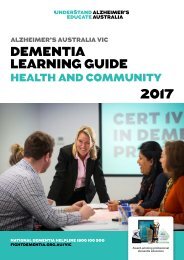Dementia Australia | The Dementia Guide
The Guide will also be used by the family and friends of someone with dementia, as it will contain information for anyone taking on a caring role. It will help people to understand more about dementia and the emotional impact of a diagnosis, the available drug treatments, and support and services that are available. It will include information about living well with dementia and about making plans for the future.
The Guide will also be used by the family and friends of someone with dementia, as it will contain information for anyone taking on a caring role. It will help people to understand more about dementia and the emotional impact of a diagnosis, the available drug treatments, and support and services that are available. It will include information about living well with dementia and about making plans for the future.
Create successful ePaper yourself
Turn your PDF publications into a flip-book with our unique Google optimized e-Paper software.
What is dementia?<br />
<strong>The</strong> word dementia describes a group of symptoms that may include<br />
memory loss, difficulties with planning, problem-solving or language,<br />
and sometimes changes in mood, personality or behaviour. It is a<br />
progressive illness, meaning symptoms gradually worsen over time. <strong>The</strong><br />
medical term for dementia is Major Neurocognitive Disorder.<br />
<strong>Dementia</strong> isn’t a natural part of ageing. It occurs when the brain is<br />
affected by a disease.<br />
<strong>The</strong>re are many known types of dementia – probably more than 100.<br />
<strong>The</strong> most common type is Alzheimer’s disease. To find out more, see<br />
Types of dementia on page 17.<br />
About dementia:<br />
• As of 2018, we estimate there to be more than 425,400 <strong>Australia</strong>ns<br />
living with dementia.<br />
• <strong>The</strong> chance of developing dementia increases significantly with age.<br />
Three in ten people over the age of 85 and almost one in ten people<br />
over the age of 65 have dementia. It is more common among women<br />
than men.<br />
• <strong>The</strong>re are more than 26,400 <strong>Australia</strong>ns aged 65 and under<br />
currently living with younger onset dementia.<br />
No two people experience dementia in the same way. Many factors<br />
can affect a person’s experience including age, the type of dementia,<br />
cultural or religious background, and the presence of other health<br />
conditions.<br />
What are the symptoms?<br />
While every person’s experience of dementia is different, some<br />
common symptoms are listed below.<br />
Memory loss:<br />
• problems recalling things that happened recently (although some<br />
people easily remember things from a long time ago)<br />
• repeating yourself (such as asking the same question a number of<br />
times)<br />
14 Call the National <strong>Dementia</strong> Helpline on 1800 100 500


